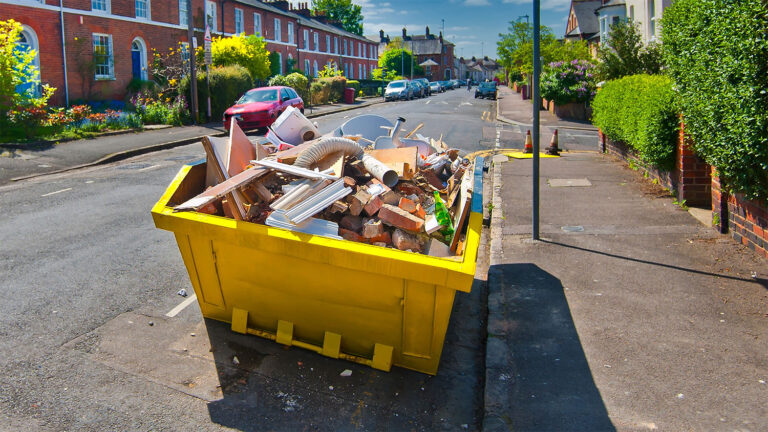
Contents
In the world of waste management, recycling is a vital component of sustainability. Skip hire, often seen as a straightforward solution for disposing of large quantities of waste, can also play a significant role in recycling efforts. By understanding how to maximise waste diversion with skip hire, you can contribute to a healthier environment and promote sustainable practices. Here’s a detailed guide to help you navigate this process effectively.
1. Understanding Waste Diversion
Waste diversion refers to the practice of redirecting waste away from landfills and into recycling or reuse. This is crucial because it conserves resources, reduces greenhouse gas emissions, and supports a circular economy where materials are continually reused and recycled.
2. Choosing the Right Skip for Recycling
Not all skips are created equal when it comes to recycling. Selecting the right size and type of skip based on the waste you expect to generate can make a significant difference. For instance, if you’re renovating a house in Dorset and need a skip, consider the types of materials you’ll dispose of. For skip hire in Dorset, choosing a provider that offers skips suitable for segregating recyclable materials is key.
3. Segregation of Waste
One of the most effective ways to maximise recycling with skip hire is by segregating waste at the source. This means separating materials like wood, metal, plastic, and glass before they are placed in the skip. This segregation not only makes the recycling process more efficient but can also reduce the cost of waste disposal, as recyclable materials often have a lower processing fee.
4. Educating the Team
Whether you’re working on a home renovation project or a commercial construction site, educating your team or family about the importance of recycling and proper waste segregation is crucial. Clear guidelines and signage can help ensure that everyone is contributing effectively to waste diversion.
5. Choosing a Responsible Skip Hire Company
The effectiveness of your recycling efforts can be significantly influenced by the skip hire company you choose. Look for companies that have a strong commitment to environmental practices, including waste sorting facilities and partnerships with local recycling centres. These companies often provide detailed reports on the amount of waste diverted from landfills.
6. Handling Hazardous Waste
It’s important to remember that not all waste can be recycled through regular skip hire. Hazardous materials such as paint, chemicals, asbestos, and electronic waste require special handling. Ensuring these materials are not placed in your skip is essential for safe and compliant waste management.
7. Reusing and Upcycling Opportunities
Before even considering skip hire for disposal, assess whether any of the waste can be reused or upcycled. Furniture, wood, and certain metals can often find a new life with a little creativity, contributing further to waste diversion.
8. Legal and Ethical Considerations
Be aware of local regulations regarding waste disposal and recycling. Some areas have specific rules about what can be placed in skips and how waste must be handled to maximise recycling. Staying informed and compliant not only helps the environment but also protects you from potential fines.
9. Monitoring and Adjusting Strategies
As your project progresses, keep track of the amount and type of waste generated. This monitoring can help you adjust your waste management strategy to increase recycling rates. For instance, if you notice a lot of plastic waste, consider additional segregation methods or different disposal options.
10. Broader Impact of Recycling with Skip Hire
By maximising waste diversion through recycling with skip hire, you contribute to broader environmental goals such as reducing landfill use, conserving natural resources, and lowering carbon emissions. Your efforts also support a sustainable economy and can even improve the reputation of your business or project.
Conclusion
Recycling with skip hire is more than just disposing of waste—it’s about making conscious choices to support a sustainable future. By following these guidelines, you ensure that your skip hire experience is not only efficient but also environmentally responsible. Let’s all play our part in creating a greener planet, one skip at a time.